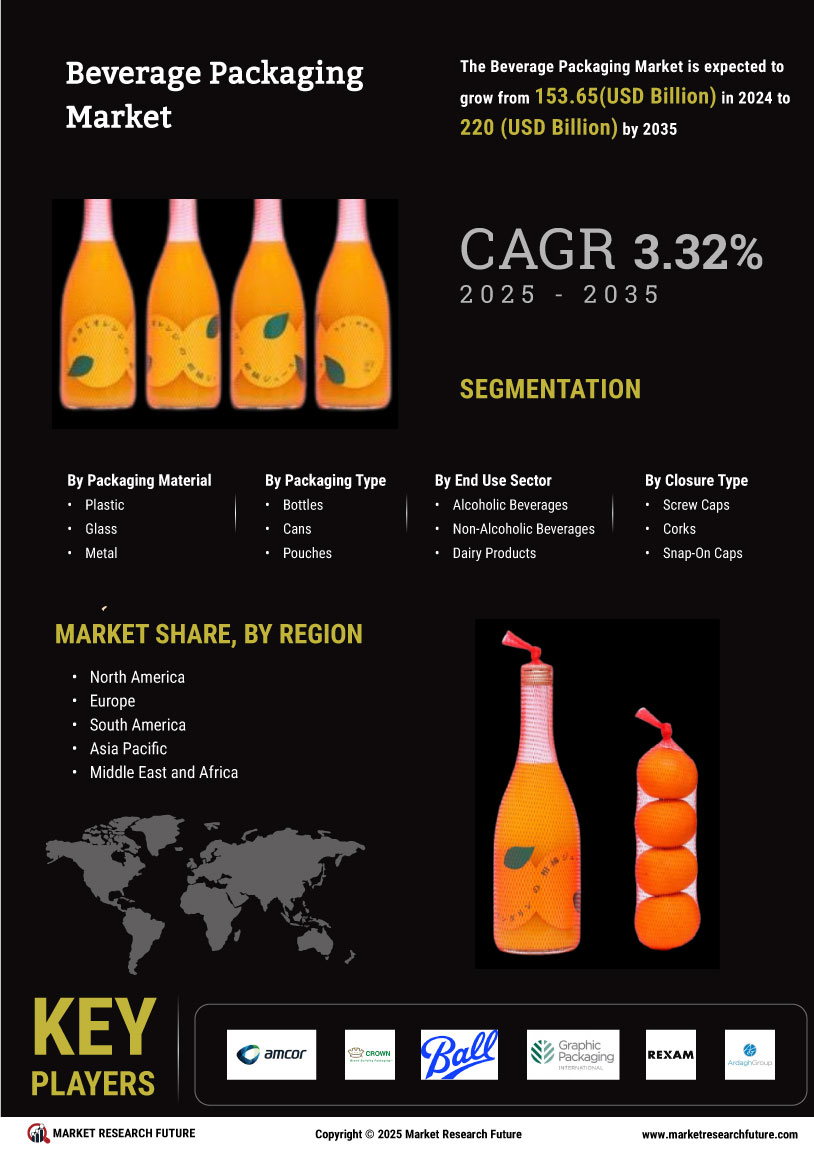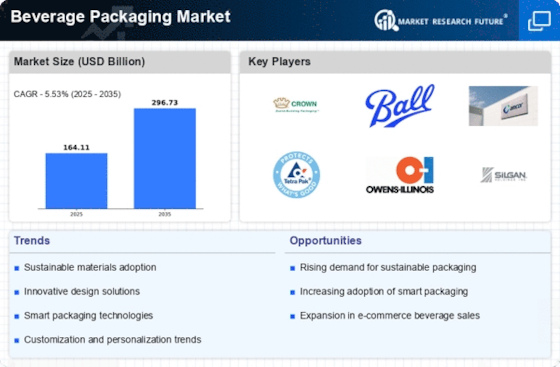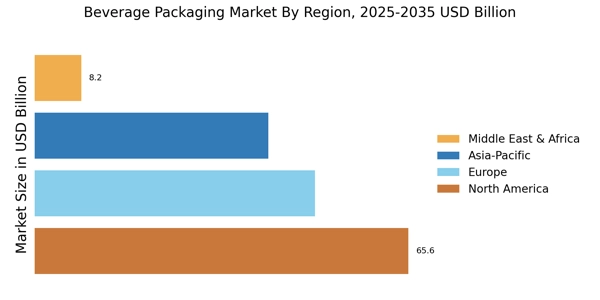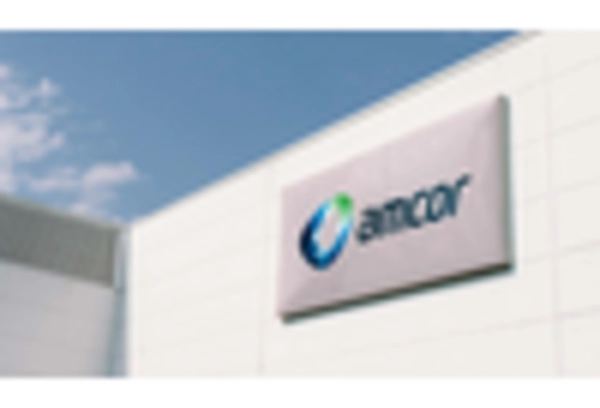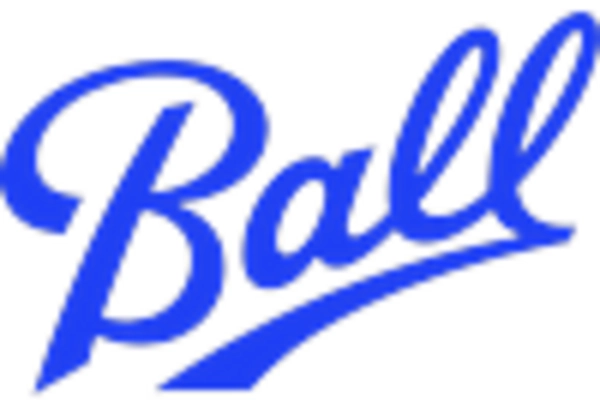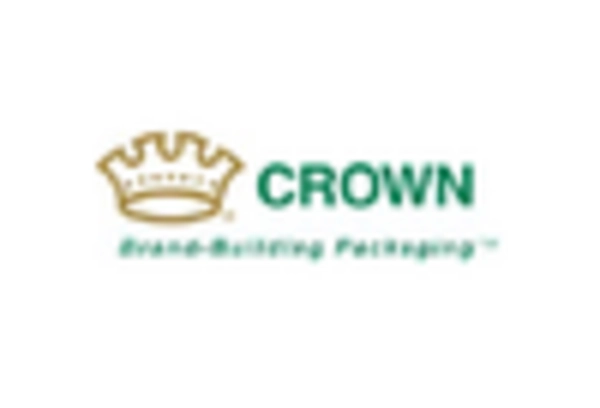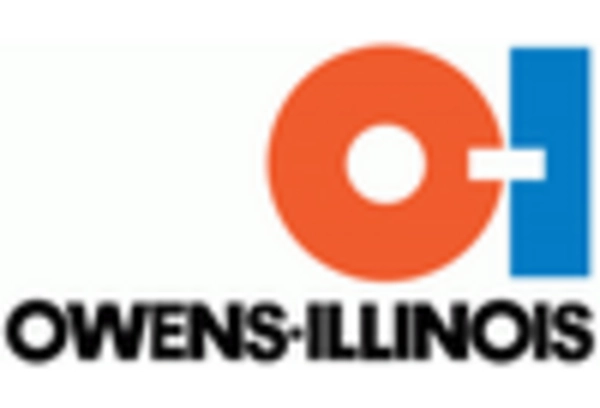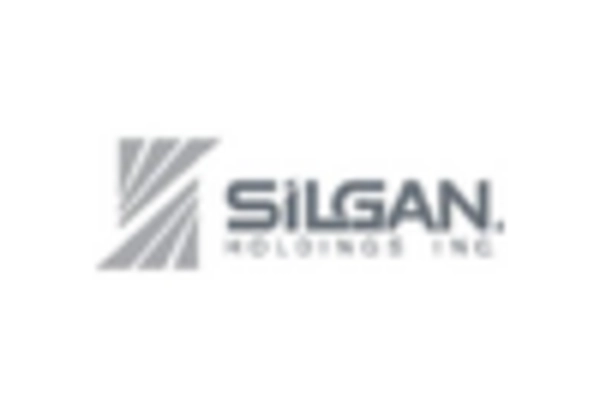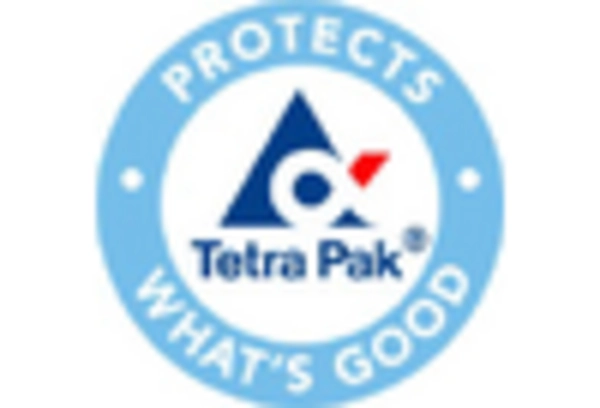E-commerce Influence
The rise of e-commerce is reshaping the Beverage Packaging Market. As online shopping becomes more prevalent, the demand for packaging that ensures product safety during transit is increasing. Packaging solutions that are lightweight yet durable are gaining traction, as they reduce shipping costs while protecting products. Data indicates that e-commerce sales in the beverage sector are projected to grow by 25% annually, necessitating innovative packaging designs that cater to this channel. Companies that adapt their packaging strategies to meet the needs of e-commerce are likely to thrive in the Beverage Packaging Market, as they enhance customer satisfaction and reduce return rates.
Regulatory Compliance
Regulatory compliance is a critical driver in the Beverage Packaging Market. Governments worldwide are implementing stricter regulations regarding packaging materials and waste management. This has led to an increased focus on developing packaging solutions that meet these regulatory standards. Companies are investing in research and development to create compliant packaging that minimizes environmental impact. The market for compliant packaging solutions is anticipated to grow as businesses seek to avoid penalties and enhance their brand reputation. As regulations evolve, companies that proactively adapt their packaging strategies will likely succeed in the Beverage Packaging Market.
Health and Wellness Trends
Health and wellness trends are significantly impacting the Beverage Packaging Market. As consumers become more health-conscious, there is a growing demand for packaging that reflects these values. This includes packaging that highlights nutritional information and promotes portion control. The market for health-oriented beverages, such as functional drinks and low-calorie options, is expanding rapidly, with an expected growth rate of 18% over the next few years. Packaging that communicates health benefits effectively can influence consumer purchasing decisions. Therefore, companies that align their packaging with health and wellness trends are likely to capture a larger share of the Beverage Packaging Market.
Sustainability Initiatives
The Beverage Packaging Market is increasingly influenced by sustainability initiatives. Consumers are becoming more environmentally conscious, leading to a demand for eco-friendly packaging solutions. This shift is evident as companies adopt biodegradable materials and recyclable packaging to reduce their carbon footprint. According to recent data, the market for sustainable packaging is projected to grow significantly, with an estimated increase of 20% over the next five years. This trend not only aligns with consumer preferences but also helps companies comply with stringent regulations aimed at reducing plastic waste. As a result, businesses that prioritize sustainability in their packaging strategies are likely to gain a competitive edge in the Beverage Packaging Market.
Smart Packaging Technologies
The integration of smart packaging technologies is transforming the Beverage Packaging Market. Innovations such as QR codes, NFC tags, and temperature-sensitive materials are enhancing consumer engagement and product tracking. These technologies provide valuable information about product freshness and authenticity, which is increasingly important to consumers. The market for smart packaging is expected to witness a compound annual growth rate of approximately 15% in the coming years. This growth is driven by the need for enhanced supply chain transparency and improved consumer experiences. Companies that leverage smart packaging solutions can differentiate themselves in the Beverage Packaging Market, appealing to tech-savvy consumers who value innovation.
